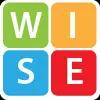Logout succeed
Logout succeed. See you again!

Reading the Word to Reading the World(s): Teaching Literature in GE Curriculum PDF
Preview Reading the Word to Reading the World(s): Teaching Literature in GE Curriculum
Reading the Word to Reading the World(s): Teaching Literature in GE Curriculum Vicky Lee June 12, 2012 GE and University Curriculum Reform: An International Conference in Hong Kong Literature a subject that stirs fear and anxiety… Ousted…excommunicated from the Hong Kong curriculum. Why? A Discipline for the Elites • An esoteric past times for selected few from Band One school • A class marker, a status symbol • Literature is “the chief weapon against the corruption and vulgarity of mass urban industrial society” (Leavis, Cambridge Don, 1930s) A myth created by the history of the city and the colonial city Remote cultural contexts • Hong Kong L2 students cannot connect with literary texts which are narrowly Anglo/Eurocentric • No relevance whatsoever for our Hong Kong students If students can connect with science fiction and Japanese anime, they can easily connect with Dickens. Complex language Inaccessible & detrimental for L2 learner • L2 learner is better off with the “functional” “communicative” “practical” approach • functional operationalism: the promotion of language ‘skills’ (Webb 7) Literacy is not just about mere functional operationalism but helping students “expand in the realm and reach of meaning” in language (Willinsky 15). Teaching Literature in 21st Century • No longer the esoteric specialization is for everyone as it is about fundamental human struggles to live • Embrace the spirit of GE of breaking boundaries and connecting disciplines… recognizes that we now live in a time of cultural and disciplinary hybridization of the regional and the global, of high and low, east and west, arts and sciences For “fruitful, democratic living” (Willinsky 123) Towards an Eclectic Approach in teaching literature in GE Curriculum • Language based model • Philosophical model • The Personal Growth Model • The Cultural Model Language based model (Carter and Long 1991) • Students focus on specific linguistic features such as literal and figurative language, symbolism and other grammatical and structure analysis. Philosophical Approach • focus on theories and philosophical inquiry on signification, deconstruction, post- structuralism etc. • Jane Austen is being read side by side with philosophers like Derrida and Althusser. Personal Growth Model (Carter & Long, 991) or the “self-” goals (Willinsky 123) • text as stimulus for self-reflection (Savvidou). • text can as a mirror – we are in fact reading ourselves, reading our own reactions as we read the text. • “Awareness of our own responses can lead to self-understanding, self-criticism, perhaps a clarification or a reinforcement of values” (Rosenblatt,22)

